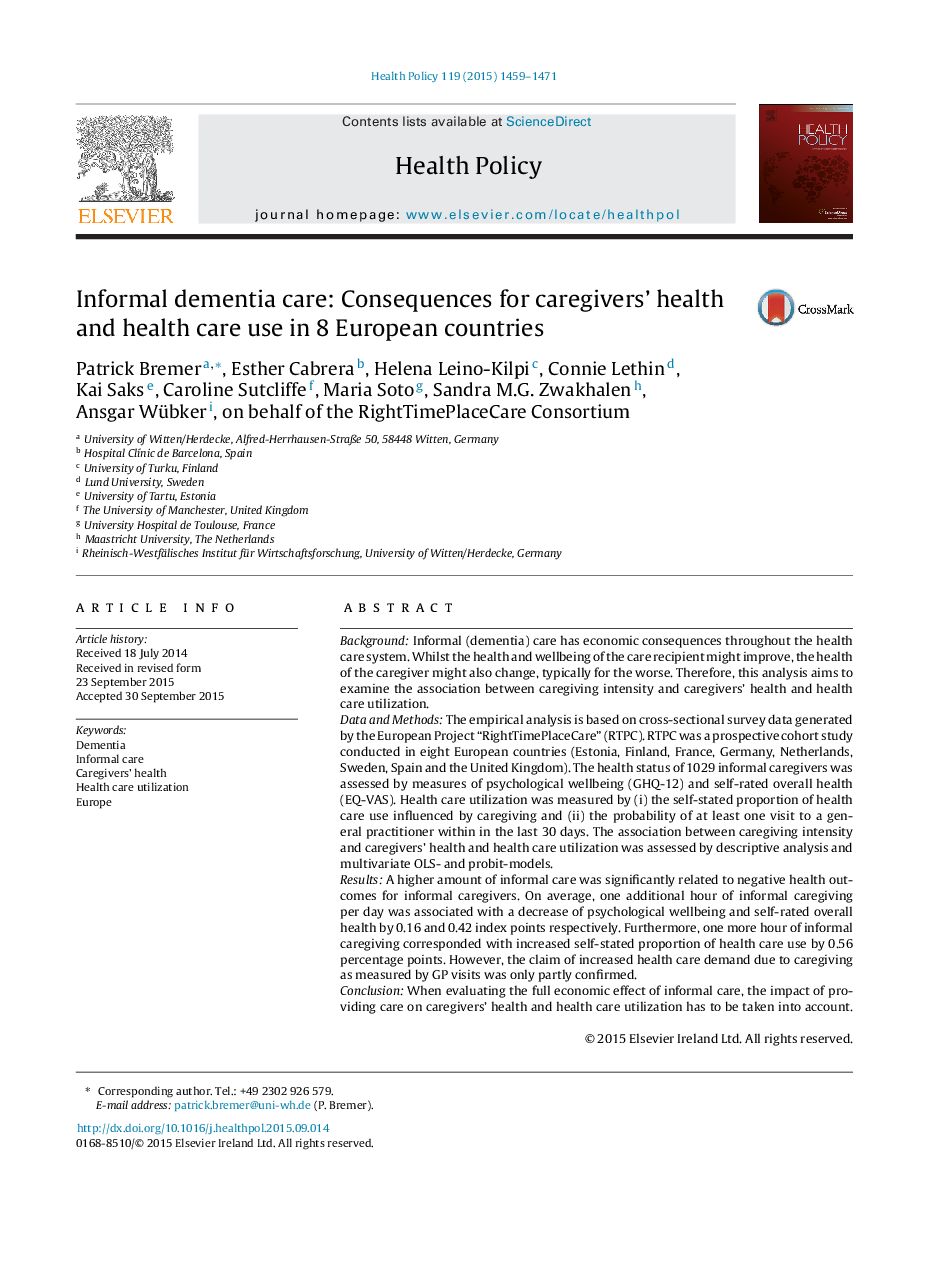| کد مقاله | کد نشریه | سال انتشار | مقاله انگلیسی | نسخه تمام متن |
|---|---|---|---|---|
| 6239092 | 1278985 | 2015 | 13 صفحه PDF | دانلود رایگان |

- Greater care intensity is related to negative health outcomes for informal caregivers.
- Behavioral problems are a strong predictor for adverse health effects among caregivers.
- An increased health care demand due to caregiving is identified.
- The findings vary significantly between different geographical regions in Europe.
BackgroundInformal (dementia) care has economic consequences throughout the health care system. Whilst the health and wellbeing of the care recipient might improve, the health of the caregiver might also change, typically for the worse. Therefore, this analysis aims to examine the association between caregiving intensity and caregivers' health and health care utilization.Data and MethodsThe empirical analysis is based on cross-sectional survey data generated by the European Project “RightTimePlaceCare” (RTPC). RTPC was a prospective cohort study conducted in eight European countries (Estonia, Finland, France, Germany, Netherlands, Sweden, Spain and the United Kingdom). The health status of 1029 informal caregivers was assessed by measures of psychological wellbeing (GHQ-12) and self-rated overall health (EQ-VAS). Health care utilization was measured by (i) the self-stated proportion of health care use influenced by caregiving and (ii) the probability of at least one visit to a general practitioner within in the last 30 days. The association between caregiving intensity and caregivers' health and health care utilization was assessed by descriptive analysis and multivariate OLS- and probit-models.ResultsA higher amount of informal care was significantly related to negative health outcomes for informal caregivers. On average, one additional hour of informal caregiving per day was associated with a decrease of psychological wellbeing and self-rated overall health by 0.16 and 0.42 index points respectively. Furthermore, one more hour of informal caregiving corresponded with increased self-stated proportion of health care use by 0.56 percentage points. However, the claim of increased health care demand due to caregiving as measured by GP visits was only partly confirmed.ConclusionWhen evaluating the full economic effect of informal care, the impact of providing care on caregivers' health and health care utilization has to be taken into account.
Journal: Health Policy - Volume 119, Issue 11, November 2015, Pages 1459-1471